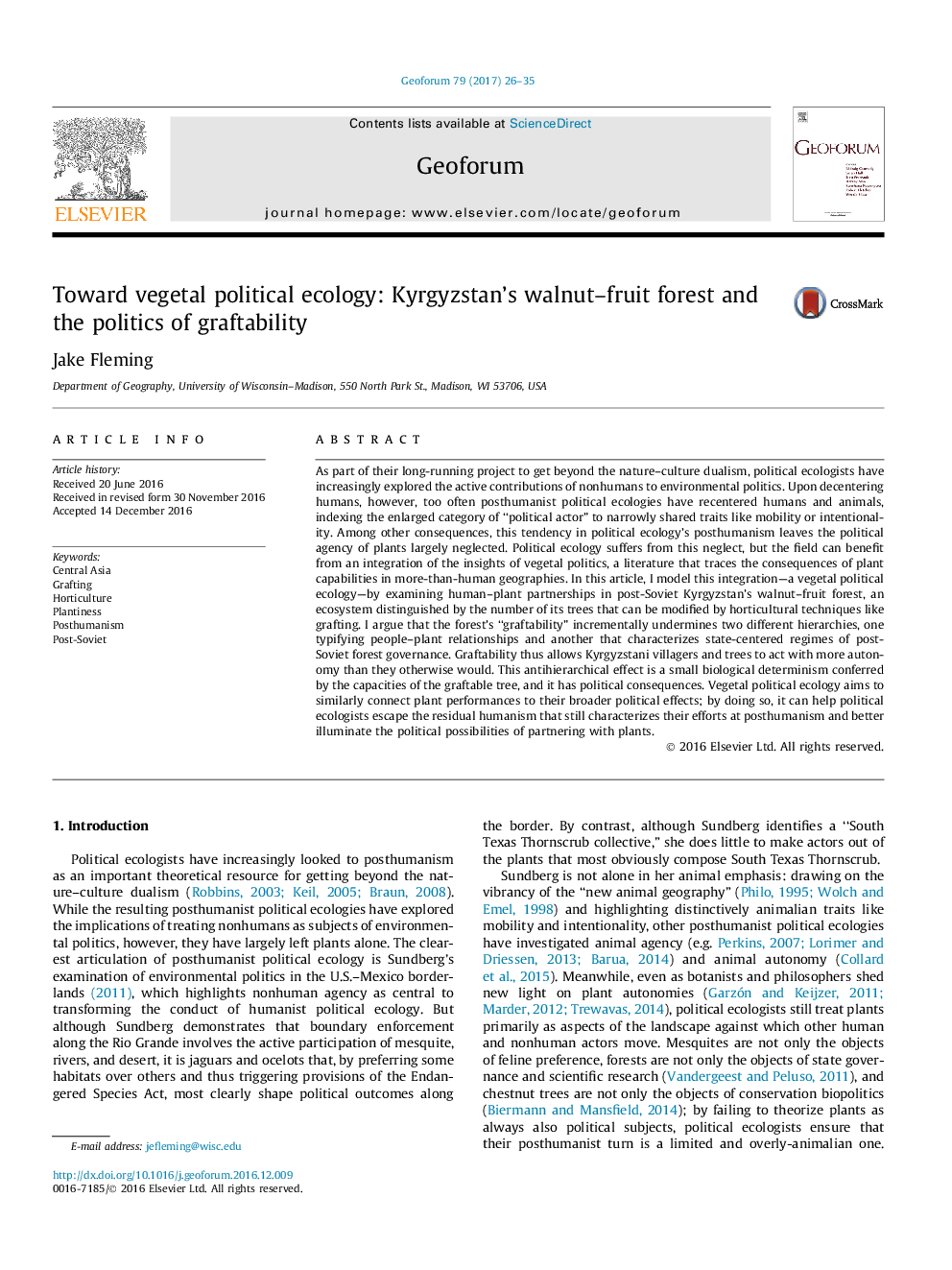| کد مقاله | کد نشریه | سال انتشار | مقاله انگلیسی | نسخه تمام متن |
|---|---|---|---|---|
| 5073405 | 1477110 | 2017 | 10 صفحه PDF | دانلود رایگان |
عنوان انگلیسی مقاله ISI
Toward vegetal political ecology: Kyrgyzstan's walnut-fruit forest and the politics of graftability
ترجمه فارسی عنوان
به سوی محیط زیست سیاسی گیاهی: جنگل میوه جنگلی قرقیزستان و سیاست تحرک پذیری
دانلود مقاله + سفارش ترجمه
دانلود مقاله ISI انگلیسی
رایگان برای ایرانیان
کلمات کلیدی
آسیای مرکزی، پیوند زدن، باغبانی، پوسیدگی پساموانیسم، پسا شوروی،
موضوعات مرتبط
علوم انسانی و اجتماعی
اقتصاد، اقتصادسنجی و امور مالی
اقتصاد و اقتصادسنجی
چکیده انگلیسی
As part of their long-running project to get beyond the nature-culture dualism, political ecologists have increasingly explored the active contributions of nonhumans to environmental politics. Upon decentering humans, however, too often posthumanist political ecologies have recentered humans and animals, indexing the enlarged category of “political actor” to narrowly shared traits like mobility or intentionality. Among other consequences, this tendency in political ecology's posthumanism leaves the political agency of plants largely neglected. Political ecology suffers from this neglect, but the field can benefit from an integration of the insights of vegetal politics, a literature that traces the consequences of plant capabilities in more-than-human geographies. In this article, I model this integration-a vegetal political ecology-by examining human-plant partnerships in post-Soviet Kyrgyzstan's walnut-fruit forest, an ecosystem distinguished by the number of its trees that can be modified by horticultural techniques like grafting. I argue that the forest's “graftability” incrementally undermines two different hierarchies, one typifying people-plant relationships and another that characterizes state-centered regimes of post-Soviet forest governance. Graftability thus allows Kyrgyzstani villagers and trees to act with more autonomy than they otherwise would. This antihierarchical effect is a small biological determinism conferred by the capacities of the graftable tree, and it has political consequences. Vegetal political ecology aims to similarly connect plant performances to their broader political effects; by doing so, it can help political ecologists escape the residual humanism that still characterizes their efforts at posthumanism and better illuminate the political possibilities of partnering with plants.
ناشر
Database: Elsevier - ScienceDirect (ساینس دایرکت)
Journal: Geoforum - Volume 79, February 2017, Pages 26-35
Journal: Geoforum - Volume 79, February 2017, Pages 26-35
نویسندگان
Jake Fleming,
